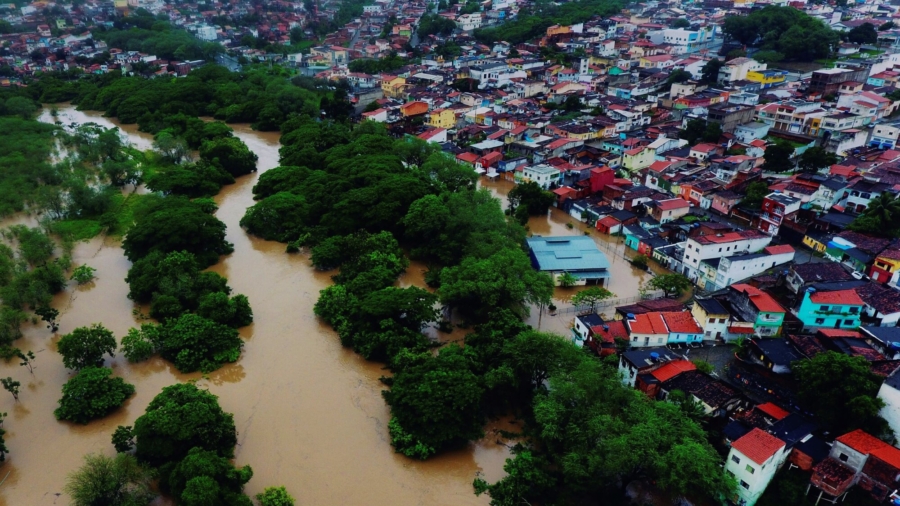Two dams broke in the northeastern state of Bahia in Brazil over the weekend following weeks of heavy rains, affecting thousands of families who were forced to flee their homes.
The Igua dam, which is situated on the Verruga river near the city of Vitoria da Conquista in southern Bahia, collapsed on Saturday night, forcing the evacuation of residents, mainly from the town of Itambe.
A second dam broke due to rising water levels in Jussiape, 100 kilometers to the north, on Sunday morning, prompting officials to alert local residents to seek safety.
The city governments of both Jussiape and Itambe urged residents to move to safer grounds.
“A dam with a high volume of water has broken and a strong flash flood is expected to affect the municipality of Itambe in a few moments. All residents should evacuate from the banks of the river Verruga urgently,” said the city message on Instagram.
The Bahia state government’s press office said the Military Fire Department of Bahia has confirmed 18 deaths as a result of the heavy rains while at least 50 cities have been affected since early November. It said more than 16.000 people are homeless, 19,580 displaced and two people missing as a result of the flooding.
“At this first moment we’re acting to save people, to get people off the top of their houses, out of isolation, with boats,” Bahia Gov. Rui Costa said during a visit to an affected area on Sunday. Costa said officials were expanding care services and support to the cities, distributing food, mattresses, and warm clothing.
On Monday, the governor’s helicopter will take water, food, and medication to the municipality of Itapitanga in the state of Bahia, which is completely isolated, Costa’s office said. A government task force has also been set up in the badly-hit regions, made up of military firefighters and police, to help respond to the disaster.
Infrastructure in the surrounding areas has been affected by the dam failures, with bridges and roads damaged and closed and a number of landslides reported.
The floods have affected around 30 cities throughout the state of Bahia, officials said, with the municipalities of Ibicaraí, Itajuípe, Itapitanga, Coaraci, Camamu, Canavieiras, Igrapiúna, Itacaré, Maraú, Una, Uruçuca, Itambé, Itororó, Itapetinga, Acatiba being the most badly damaged.
“It is a gigantic tragedy. I don’t remember if, in the recent history of Bahia, there is something of that proportion due to the number of cities and houses involved. It’s something really scary, the number of houses, streets, locations completely under water,” Costa said.
Brazil’s National Institute of Meteorology (Inmet) and the National Center for Monitoring and Alerts on Natural Disasters (Cemaden) have warned there is a risk of new floods and landslides in Bahia, due to accumulated rainfall in the last few years, according to Agencia Brasil.
December rainfall in Bahia’s capital, Salvador, has been six times greater than the average, Reuters reports.
The heavy rainfall coincides with the La Nina weather phenomenon, which has been ongoing since last year. During a La Nina, which typically occurs every 3 to 5 years, Pacific Ocean temperatures are cooler than normal, the opposite of El Nino when they are warmer, which can have a major effect on world climate.
From The Epoch Times

